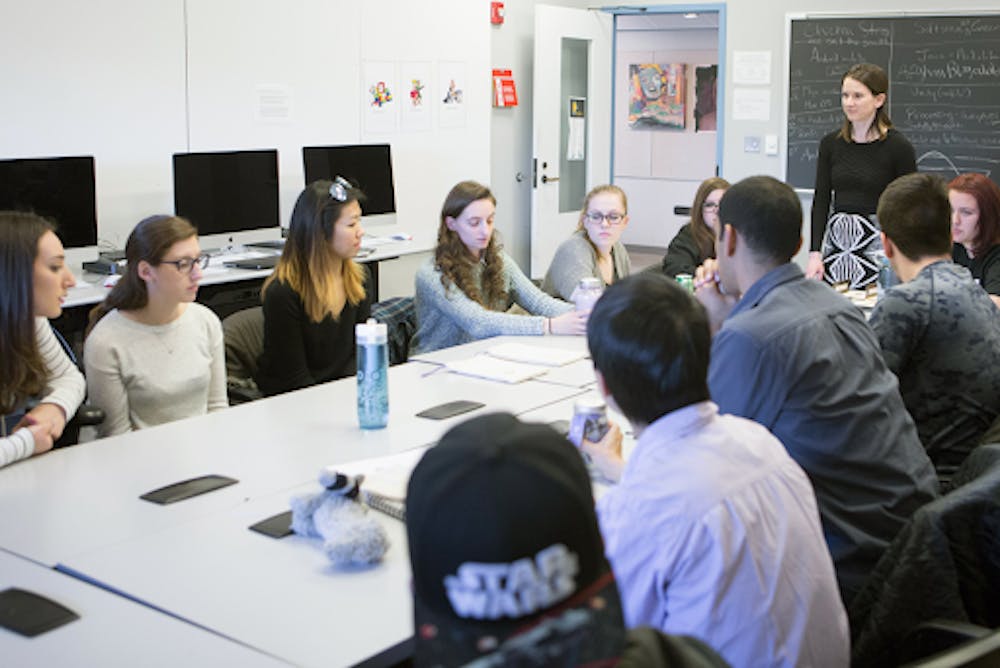By Kaitlyn Bonomo
Staff Writer
After nearly two full semesters of remote instruction, in-person classes have returned for the fall semester. As students brace for the return, professors at the College prepare to welcome students back into the classroom and adjust themselves to being back on campus.

Although there were a few hybrid courses available for the 2021 spring semester, this upcoming semester will be the first to offer fully in-person classes since the pandemic has started.
“As hard as it's been, I think the TCNJ community has done an amazing job staying flexible and centering our core values through profoundly unpredictable times,” said English Professor Catie Rosemugry. “Everyone is working hard to protect people, like me, who have medical conditions or disabilities and remain at increased risk. I'm frankly awed by how thoughtfully our community is navigating the swirl of competing concerns that face higher education during Covid.”
Though there will still be some remote instruction this semester, the College is expected to be full of life as it had been before the pandemic struck. “I know many students are excited and relieved to return to campus. So many folks are working hard to make that happen,” Rosemugry, who opted to keep her classes online, said.
“To be honest, it was exhausting for all of us,” Public Health Professor Dr. Natasha Patterson said, referencing remote learning. “However, I did have some pluses. My students showed up, not just physically, but also by engaging with the content. That was motivation for me.”
Patterson received an online teaching certificate in the fall of 2019, which she credited for having fresh ideas in mind for classroom engagement when moved online.
“Public Health is a collaborative field,” she said. “Now that we are moving back to in-person with safety precautions in place, I will continue to use some of the virtual tools and use in-person teaching to debrief and touch on new topics.”
Though Covid-19 vaccines have made the return to campus possible, the rise of the Delta variant raises concern about the safety of being back on campus.
“The surge in the Delta variant changed my risk calculations and led my doctors to recommend I do not return to the physical classroom this semester,” Mathematics Professor Jana Gevertz said. “As the default teaching model this semester is in-person, my request to teach from home had to be approved by the College. Despite the fact that I will really miss being surrounded by our students and my colleagues, I know this is the right choice to protect my health and safety, and I'm grateful that TCNJ could accommodate me.”
The shift back to in-person classes may come with additional obstacles for professors and students alike.
“From the faculty-side, we have to anticipate that there will be a plethora of reasons that some students may not be able to attend in-person classes on a given day – or meet a deadline. We have to be okay with this,” Dr. Gevertz said. “From the student side, students should anticipate that there may be reasons their professors need to quarantine or isolate and that their in-person course might have to temporarily move to an online setting.”
As exciting as returning to campus will be, it is important for students and staff to recognize the danger that Covid-19 can still present to the College.
“I want to ensure the safety of all who come to my class,” Patterson said. “I also have family members at home who are high risk and I want to make sure that I am being safe. I think we all have different concerns and challenges that we will need to navigate through.”
For a smooth transition back to campus, students and professors are working in cooperation to safely execute the semester and create an accommodating, open-minded environment for all of the College community.
“Good communication isn't just important – it's the key that unlocks the potential of any classroom, remote or in-person,” Rosemugry said. “I encourage students to share their questions, concerns, and experiences with their teachers as they arise. Don't struggle or wonder or worry – reach out.”
From moving out of dorms and missing the college experience, the campus shut down and moving classes online was devastating for students. Nevertheless, professors and students are all in the same boat coming back to shore.
“Demonstrating kindness, understanding and empathy will go a long way as we navigate this semester,” Patterson said. “We are all trying our best and dealing with things in our lives the best we know how, so if we can practice those three things along with being flexible, we should be able to adapt.”







